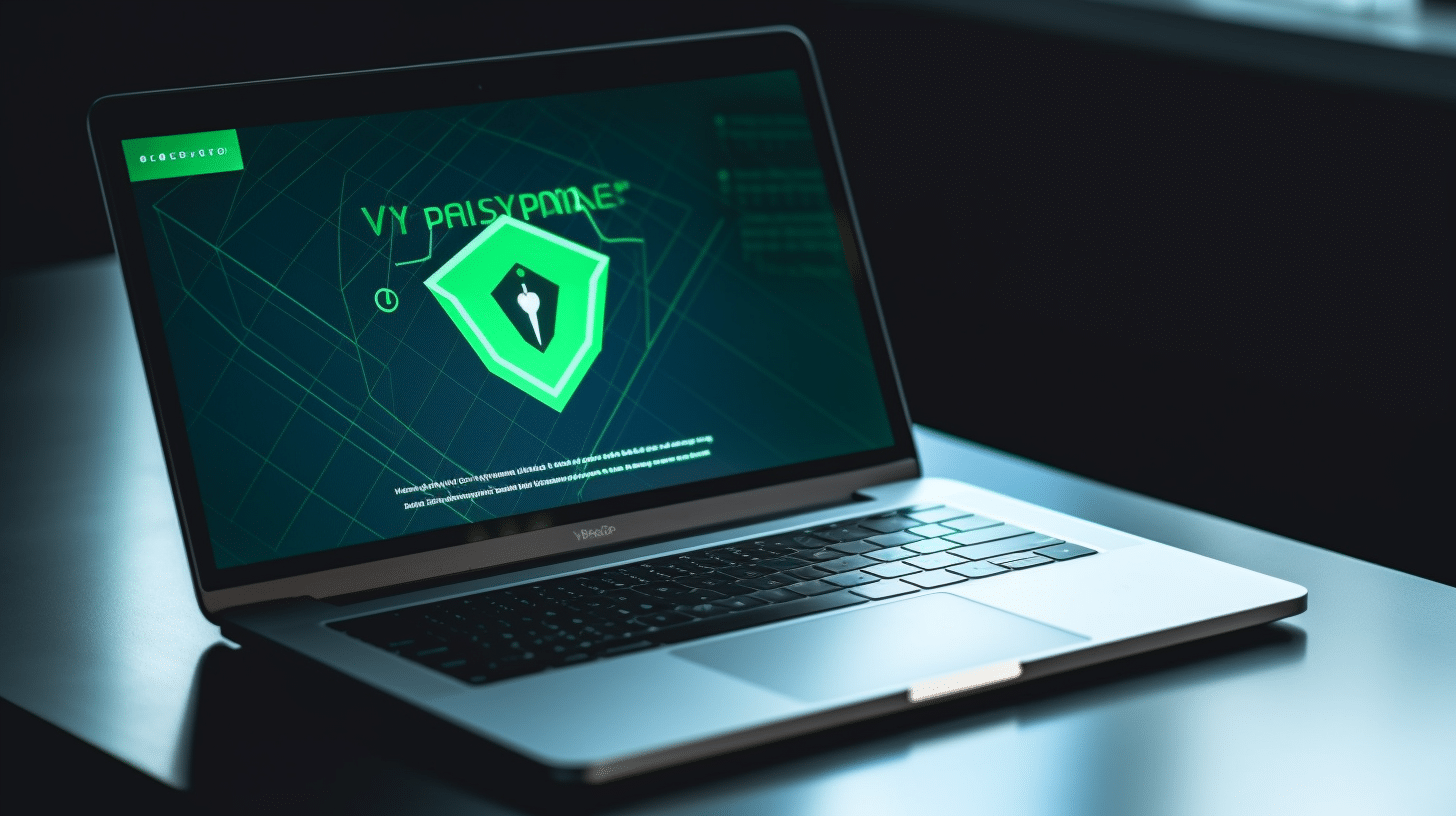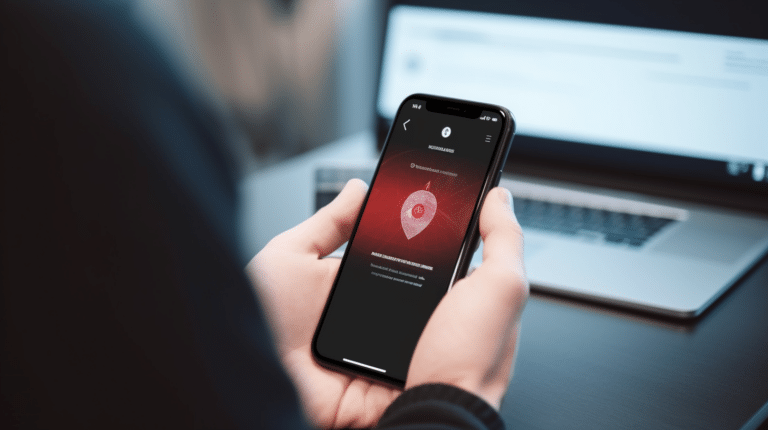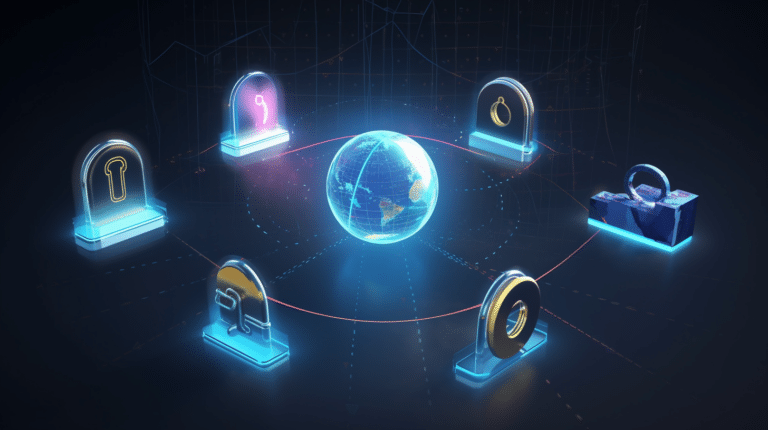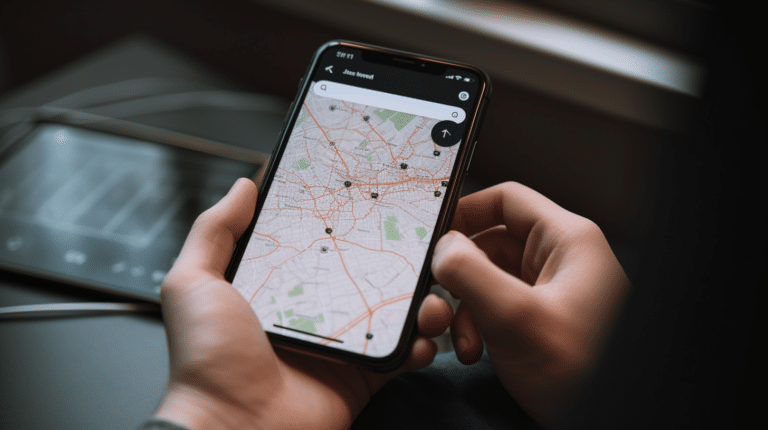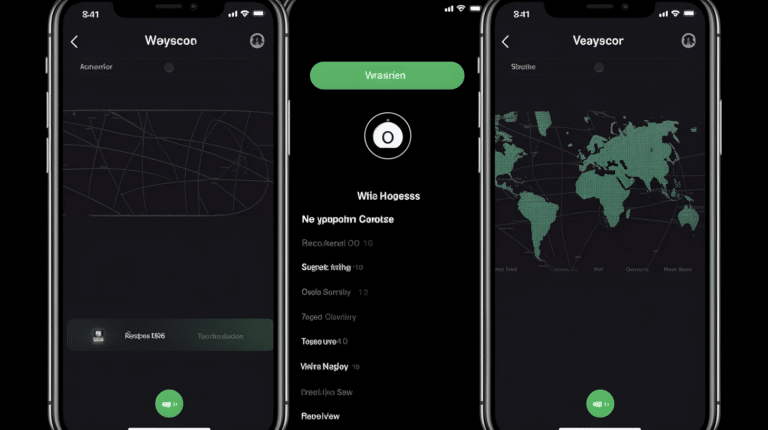The use of Virtual Private Networks (VPNs) has become increasingly popular as individuals and businesses seek ways to improve their online privacy and security. VPNs are designed to encrypt your internet connection, making it difficult for hackers, marketers, and even your own Internet Service Provider (ISP) to snoop on your online activities. But as VPN usage continues to rise, the inevitable question arises: Are VPNs really safe?
While VPNs can generally be considered a safe tool to protect your identity and data, the level of security they provide primarily depends on the specific VPN service you choose. It’s essential to do thorough research and select a reputable, reliable VPN provider to ensure your online safety. Some VPNs may have vulnerabilities, while others could contain potential threats if not carefully chosen. Understanding the different aspects of VPN services, such as privacy, security, and potential risks, can help you make the best decision for your needs.
Key Takeaways
- VPNs encrypt your internet connection, enhancing privacy and security online.
- The safety of a VPN largely depends on the quality and reliability of the service provider.
- Diligent research and understanding of VPN features are crucial when selecting a suitable option for your needs.
Understanding VPN
What is a VPN
A VPN (Virtual Private Network) is a technology that provides a secure and encrypted connection over the internet. It encrypts your data, masks your IP address, and allows you to access geo-restricted content by routing your internet traffic through a remote server. This helps protect your personal information and ensures privacy while browsing the web. VPNs are widely used by individuals and businesses alike to maintain online security and privacy, as well as to bypass censorship and access region-specific content.
When using a VPN, your internet data is sent through an encrypted tunnel, which prevents hackers, malicious websites, and even your own internet service provider (ISP) from monitoring your online activities. This encryption process is especially useful for securing sensitive information such as login credentials, financial transactions, and personal communications.
History of VPN
The history of VPNs dates back to the late 1990s when Microsoft developed a point-to-point tunneling protocol (PPTP) to provide a secure way for employees to remotely access their company’s network. This was done to enhance security, as traditional remote access solutions posed significant risks to sensitive company data. Over time, other VPN technologies such as IPSec, L2TP, and OpenVPN emerged to improve upon the original PPTP’s limitations and offer even more robust security features.
In the early 2000s, with the increasing popularity of the internet, VPNs started being widely used by individuals not only for work but also for personal purposes. As concerns about online privacy and censorship grew, VPNs became an essential tool for people looking to protect their online activities from prying eyes and access blocked content. Today, the VPN market continues to evolve, with numerous VPN providers offering various features, encryption protocols, and server locations to cater to different user needs.
Security Aspects of VPN
Encryption
VPNs are designed to provide a secure and private connection by encrypting your data. This encryption ensures that any intercepted data is unreadable to unauthorized parties. VPNs use advanced encryption protocols such as AES-256 to encrypt the data transmitted between your device and the VPN server. This encryption helps protect your online activities from potential hackers, cybercriminals, and even your ISP.
ISP and VPN
Your Internet Service Provider (ISP) can track your browsing history and monitor your online activities. With a VPN, your ISP can no longer see your data because it’s encrypted by the VPN’s secure connection. Instead, your ISP only sees your connection to the VPN server, effectively masking your online activity and preserving your privacy. This is especially helpful in countries with strict internet censorship or surveillance where using a VPN helps users bypass these restrictions and access blocked content.
Kill Switch
An important security feature of a VPN is the kill switch. In the event that your VPN connection drops, a kill switch automatically disconnects your device from the internet to prevent data leakage. This feature ensures that no unencrypted data is transmitted while you’re unknowingly disconnected from the VPN, keeping your online activities safe and secure. Some VPNs also offer customizable kill switch settings, allowing you to choose specific applications or websites for the kill switch to target, providing an extra layer of security.
Privacy and VPN
Anonymity and VPN
Using a VPN can greatly improve your online anonymity. When you connect to a VPN server, your internet traffic is encrypted and routed through the server, which effectively hides your real IP address. This makes it difficult for third parties, such as hackers, advertisers, or even government agencies, to track your online activities. While VPNs can make you more anonymous, it’s important to note that they can’t provide complete anonymity, as your VPN provider still has access to your data and may store logs about your activities depending on their privacy policy (source).
Online Privacy through VPN
VPNs can play an important role in online privacy. By replacing your IP address with a different one, they make it harder for websites and other observers to identify your true location and identity. Additionally, the encrypted connection between your device and the VPN server ensures that your data stays safe from potential threats like hackers or snoopers (source). To maintain a good level of privacy, choose a VPN provider that has a strict no-log policy and transparent information about data storage and handling.
Browsing History and VPN
A VPN also helps protect your browsing history. When you use a VPN, your internet service provider (ISP) can no longer see the websites you visit, as all traffic is encrypted and sent through the VPN server. This prevents your ISP from collecting data on your browsing habits and potentially selling it to third parties (source). Keep in mind that while a VPN can hide your browsing history from your ISP, it’s still crucial to choose a trustworthy VPN provider, as they could have access to this information instead.
Remember that using a VPN can greatly enhance your privacy and anonymity online, but it’s not a perfect solution. It’s essential to carefully select a reputable VPN provider and understand the limitations of the service to ensure your online activities remain as private as possible.
Risks Associated with Free VPNs
Free VPNs and Data Breach
While free VPNs might seem tempting, they come with a number of risks, such as the possibility of a data breach. In some cases, free VPNs have been found to contain malware, which can compromise users’ privacy and security. Additionally, these VPN providers may not have the resources to maintain the highest level of security measures, resulting in vulnerabilities that hackers can exploit.
Moreover, free VPN providers often track users’ online activities to sell to third parties, potentially exposing sensitive personal information to unknown entities. It is essential to acknowledge these risks and be cautious while using free VPNs.
Free VPN Services and Their Drawbacks
Free VPN services can have certain drawbacks compared to their paid counterparts. Some of these limitations include:
- Low monthly data limits: Free VPNs often impose strict data caps, forcing users to upgrade to a paid plan or look for another VPN service.
- Reduced speed: Free VPNs tend to have lower throughput speeds, making activities such as video streaming frustratingly slow and challenging.
- Ads and tracking: In order to generate revenue, some free VPNs may bombard users with pop-up ads that not only cause annoyance but may also slow down connection speeds. Additionally, ad-serving trackers can monitor users’ activities, resulting in reduced privacy and security.
By considering these risks and drawbacks, users can make informed decisions about whether to use a free VPN service or invest in a reliable, paid VPN provider for better online safety and functionality.
Reviewing VPN Services
When it comes to online security and privacy, VPNs are a popular choice. In this section, we’ll take a look at the best secure VPN services and understand what to consider when reading VPN reviews.
Best Secure VPN Services
Here’s a list of some reliable and secure VPN services available in the market:
- ExpressVPN: Known for its strong security measures and fast speeds, it provides over 3,000 servers in 94 countries.
- NordVPN: With more than 5400 servers in 59 countries, it offers exceptional security features and a strict no-logging policy.
- Surfshark: A cost-effective choice, Surfshark has 3,200 servers across 65 countries and supports unlimited device connections.
- Private Internet Access: Popular for its affordable pricing, it boasts over 35,000 servers across 77 countries and supports ten simultaneous connections.
- Mullvad: With its focus on privacy and anonymity, Mullvad operates 720+ servers across 36 countries and accepts anonymous payment methods.
Please note that the popular Opera browser also includes a built-in VPN, which provides a convenient and secure browsing experience directly from the browser.
Understanding VPN Reviews
When evaluating a VPN service, it’s essential to read and understand VPN reviews by considering the following factors:
- Security Features: Ensure the VPN offers strong encryption, secure protocols, and extra features like a kill switch and DNS leak protection.
- Privacy Policy: Read the VPN’s privacy policy carefully to ensure they have a strict no-logging policy, stating that they do not store users’ online activity.
- Server Locations: A broad range of server locations offers more options for users to unblock content and improve connection speeds.
- Connection Speeds: Faster connection speeds are crucial for streaming, gaming, and downloading large files. Look for reviews that mention speed tests or comparisons.
- Ease of Use: A user-friendly and intuitive interface is important for a seamless experience, especially for those new to VPNs.
- Pricing and Plans: Compare various pricing options and plans offered by VPN services to find one that matches your requirements and budget.
- Device Compatibility: Make sure the VPN supports multiple devices and operating systems, especially if you plan on using it across different gadgets.
- Customer Support: Reliable and responsive customer support can prove invaluable in case of technical difficulties or questions.
By considering these factors, you can make an informed decision when choosing a VPN service that matches your needs without compromising on security, privacy, and performance.
Using VPN with Different Devices
When considering the safety of utilizing a VPN, it’s essential to examine how it performs across various platforms. Especially knowing that the devices we use on a regular basis might be prone to security risks. In this section, we will focus on Android and mobile devices.
Android and VPN
Android, being one of the most widespread operating systems, offers a multitude of VPN options. It is crucial to choose a reliable and secure VPN service that fits your needs. Some reputable VPNs designed specifically for Android devices include strong encryption, DNS leak protection, and a kill switch feature, which protects your data and online privacy if the VPN unexpectedly disconnects.
The Google Play Store offers a wide range of VPN apps, but be cautious when selecting a VPN service. Make sure to research the company’s background, read user reviews, and verify that their privacy policy clearly states they do not log user data. Additionally, utilizing a paid service typically ensures better security and a wider variety of features.
Mobile Device and VPN
Mobile devices, such as smartphones and tablets, have become an integral part of our lives. They often contain our personal data as well as access to our online accounts, making security a top priority. Using a VPN on your mobile device provides a layer of protection and privacy when connecting to public Wi-Fi networks or unsecured cellular data. This is because the VPN encrypts your data, making it difficult for hackers, cybercriminals, and even your ISP to intercept and read it.
To ensure the safety of using a VPN on your mobile device, stick to reputable providers, and avoid free or questionable services. Reputable VPN services typically offer user-friendly apps for both Android and iOS platforms, making it easy to install and operate them on your device. By following these guidelines, you can enhance the security of your mobile device and keep your data confidential.
Potential Threats When Using VPN
Although VPNs offer an added layer of security and privacy, there are potential threats that users must be aware of when using these services. This section discusses two sub-topics: VPN and malware, and phishing and VPN, to help users understand the possible risks.
VPN and Malware
While VPNs do an exceptional job in encrypting data and masking users’ IP addresses, they do not offer complete protection against malware and viruses. VPNs are not a replacement for proper antivirus software. Users should ensure they have a reliable antivirus program installed alongside their VPN to maintain a secure online presence.
Moreover, some VPN providers may not have robust security measures in place, potentially exposing users to malware. It is essential to choose a reputable VPN service that has a strong commitment to security. Users can read reviews and verify the security protocols of different VPN providers before making a decision.
Phishing and VPN
Phishing attacks involve cybercriminals posing as legitimate entities to extract personal information from unsuspecting users. While VPNs can help maintain privacy and protect against some cybersecurity threats, they are not impervious to phishing attacks.
Using a VPN can provide a false sense of security, leading users to believe they are invulnerable to all online threats. It is crucial to stay informed about the latest phishing tactics and be cautious when providing sensitive information online. Combining a VPN with other proactive measures, such as secure browsing habits and awareness of phishing attempts, improves overall online security.
In conclusion, while VPNs offer significant benefits in terms of privacy and security, they are not a magical solution that can protect against all cybersecurity threats. It’s essential for users to remain vigilant and complement their VPN usage with antivirus software and secure browsing habits.
Choosing a VPN
Researching VPN Service
When searching for a VPN, it’s crucial to do thorough research on the service itself. Make sure to read reviews, explore the features they offer, and compare prices. Check if the VPN provider has a strict no-logs policy to ensure they do not store your data. Additionally, look for services that use strong encryption protocols to protect your data from potential hackers or surveillance agencies. This will help you gain a confident and knowledgeable understanding of the VPN service and its security measures.
Location and Server Importance
The location of the VPN provider and their servers play a significant role in ensuring the safety and speed of your connection. By having a wide range of server locations to choose from, you can more easily bypass geo-restrictions and access content from different regions. Moreover, a higher number of servers typically results in better performance since the network load is distributed among more resources.
It’s worth considering the jurisdiction of the VPN provider, as different countries have varying laws regarding data privacy and surveillance. Choosing a VPN provider located in a country that respects privacy and has strong legal protections can help ensure the safety of your data.
In conclusion, choosing the right VPN service requires research into the service itself, as well as understanding the importance of location and server infrastructure. By considering these factors, you’ll be better equipped to select a VPN that best meets your needs and offers the protection and privacy you seek.
VPN for Business Owners
VPN for Employees
A VPN (Virtual Private Network) is a vital tool for business owners to ensure the online security of their employees. By using a VPN, employees can safely access company resources and data without the risk of unauthorized access or cyberattacks. This is especially crucial for remote workers and those who need to access sensitive information over public Wi-Fi networks.
VPN services like ExpressVPN offer a secure connection by encrypting the data transmitted between a user’s device and the VPN server. This prevents any third parties from intercepting or tracking the data, ensuring the privacy of both employees and the business.
- Protects against cyber threats and data breaches
- Ensures secure remote access to company resources
- Provides a safe way for employees to access sensitive information
Secure Client Information with VPN
Business owners also need to protect their clients’ sensitive information, such as credit card details and personal data. A VPN offers a secure solution by acting as a secure tunnel that keeps the client’s data safe from cybercriminals and other unauthorized access. This is particularly essential for e-commerce businesses or those handling financial transactions online.
By investing in a reliable VPN service, such as Perimeter 81, business owners can ensure the following:
- Secure handling of client credit card information
- Protection of personal data from being leaked to unauthorized parties
- Maintaining customer trust and compliance with data privacy regulations
In summary, a VPN plays a crucial role in protecting both employees and clients in today’s digital landscape. By implementing a VPN solution, business owners can maintain a secure online environment for their teams and safeguard sensitive client information.
Frequently Asked Questions
What security risks do VPNs pose?
VPNs are designed to enhance your security and privacy online. However, some risks are associated with using VPNs. These may include potential data leaks, vulnerabilities in the VPN’s software, or unsecure protocols used by the service. Also, despite a VPN’s encryption capabilities, some free and low-quality VPNs might log your data, putting your privacy at risk.
Can using a VPN protect my data on Android?
Yes, a VPN can help protect your data on Android devices by encrypting your internet connection and hiding your IP address. This helps to ensure privacy and safety when connecting to public Wi-Fi networks, accessing region-specific content, and shielding you from possible cyber threats. However, make sure to choose a reputable VPN service to ensure reliable protection.
Which free VPNs provide reliable security?
While some free VPNs might offer reliable security, it’s essential to thoroughly research and compare services. Free VPNs are usually limited in features and might not provide the same level of security as paid services. Opting for a reputable paid VPN service is a safer choice in terms of performance and security.
How effective are VPNs in maintaining privacy?
VPNs are generally effective in maintaining privacy as they encrypt traffic and mask your IP address, making it difficult for third parties to trace your online activities. However, the level of privacy depends on the specific VPN service you use, its security measures, and its privacy policy. Not all VPNs are created equal, and some might not offer complete protection from online threats or surveillance.
Is it recommended to pay for VPN services?
Yes, paying for a VPN service is generally recommended, as it tends to provide better security, faster speeds, and more extensive server choices compared to free alternatives. Paid VPN services also usually have stricter no-log policies, lower chances of data leaks, and better customer support.
What factors determine the safety of a particular VPN?
Several factors determine the safety of a VPN, including the strength of its encryption, the security of its protocols, its no-log policies, and whether it has had independent security audits. Additionally, the VPN’s jurisdiction and reputation should be considered, as well as any historical data breaches or controversies. Researching and selecting a secure VPN service is crucial to ensure your online safety.
